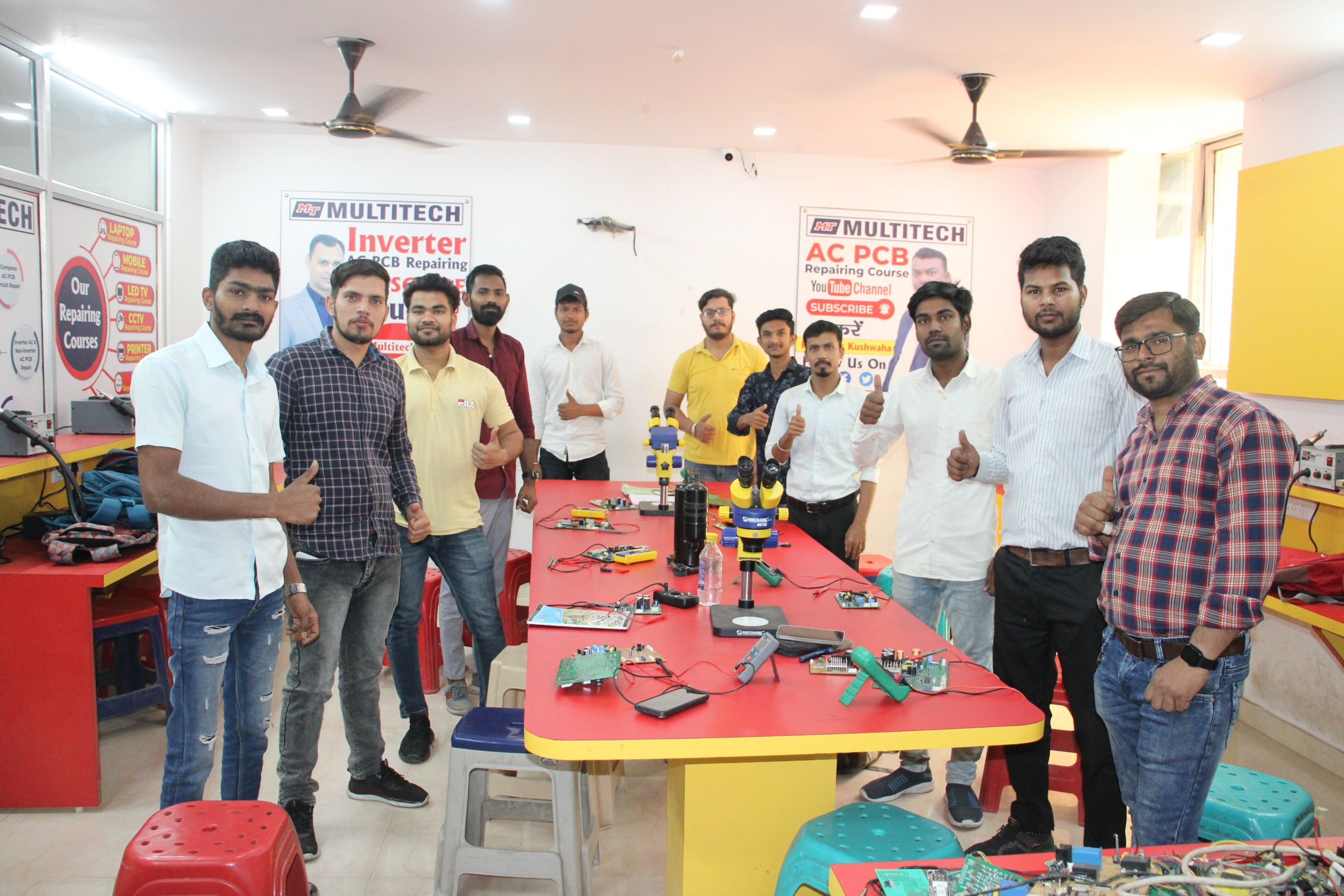
Inverter AC PCB Repairing Course Details: Unraveling Inverters
The Inverter AC PCB Repairing Course provides comprehensive insights into the intricate world of inverter air conditioning systems. Participants will unravel the complexities of inverter technology, gaining in-depth knowledge of printed circuit board (PCB) repair techniques. This course delves into circuit analysis, fault detection, and hands-on repair methods, empowering students to diagnose and fix issues with confidence. From troubleshooting to component replacement, learners will master essential skills for a thriving career in the HVAC industry. Join this course to unlock the secrets of inverter ACs and become a skilled technician capable of tackling any PCB-related challenges.
Introduction to Inverter AC PCB Repairing Course
The “Inverter AC PCB Repairing Course” serves as a gateway into the world of inverter air conditioners and the intricate circuitry that keeps them running efficiently. In an age where environmental concerns and energy efficiency are paramount, understanding how to repair and maintain inverter air conditioners is a skill in high demand. This course is an essential stepping stone for aspiring technicians and HVAC professionals.
Understanding the Basics of Inverter Air Conditioners
Inverter air conditioners are a technological leap forward in the realm of cooling systems. They operate on a variable-speed compressor principle, which means they adjust their cooling output to match the specific cooling needs, unlike conventional ACs that switch on and off repeatedly. This feature not only makes them energy-efficient but also provides quieter operation. Understanding the underlying technology and principles is essential for any technician aiming to work with inverter ACs. Students of this course will gain insights into how these systems operate, the physics behind them, and why they have become the preferred choice for both residential and commercial applications.
Exploring the Functionality of Inverter AC PCBs
Inverter air conditioner PCBs are the brains of the system, responsible for controlling and coordinating the various components of the AC. This section of the course delves deep into the intricacies of PCB functionality. Students will learn how the PCB manages the compressor speed, regulates fan motors, monitors temperature sensors, and ensures the overall efficient functioning of the AC unit. Understanding the role of the PCB is pivotal in effectively diagnosing and troubleshooting issues within the inverter AC system.
Safety Precautions and Equipment for PCB Repair
Safety is paramount in any electronics-related field, and PCB repair for inverter air conditioners is no exception. This part of the course instills a strong focus on safety measures. Students will be educated on the importance of proper grounding, handling Electrostatic Discharge (ESD)-sensitive components, and utilizing personal protective equipment (PPE). Additionally, they will become acquainted with the array of tools and equipment required for effective PCB repair. A well-equipped and safety-conscious technician is poised for successful repair work.
Identifying Common Inverter AC PCB Issues
Inverter air conditioners, like all machines, are susceptible to common problems that can arise over time. This section of the course provides students with a comprehensive list of the most frequently encountered issues. These may include the degradation of capacitors, damaged traces on the PCB, malfunctioning integrated circuits, and more. Students will be trained to recognize these problems through visual inspection and diagnostic testing, thus enabling them to swiftly and accurately identify the source of a malfunction.
Disassembly and Component Identification
In order to access and repair the PCB, students will be guided through the meticulous process of disassembling the air conditioner unit safely. This section ensures that students can comfortably and competently navigate the AC’s internal components to reach the PCB. Alongside disassembly, they will also gain insights into identifying key components on the PCB, such as resistors, capacitors, transistors, and integrated circuits. Accurate identification is the first step toward successful repair work.
Soldering and Desoldering Techniques for PCB Repair
Soldering and desoldering are foundational skills in the world of PCB repair. This section of the course provides hands-on training in these techniques, allowing students to replace faulty components, solder new ones in place, and undertake any necessary rework on the PCB. Proficiency in soldering is indispensable, as it ensures that repairs are reliable and durable, guaranteeing the long-term functionality of the inverter air conditioner.
Troubleshooting and Diagnostic Tools
The success of any repair endeavor hinges on accurate diagnostics. In this course, students will become well-versed in the use of various diagnostic tools, including multimeters, oscilloscopes, and specialized software for PCB testing. They will learn how to employ these tools to pinpoint the source of issues and validate their repair solutions. In-depth knowledge of diagnostic tools is essential for ensuring efficient and effective repair work.
Repairing and Replacing Faulty Components
With a firm understanding of diagnostics and soldering, students progress to the core of the repair process. They gain practical experience in repairing or replacing components that are causing the malfunction. Whether it’s a blown capacitor, a damaged IC, or a corroded trace, students are trained to rectify these issues effectively. This hands-on experience is invaluable, as it equips technicians with the practical skills needed to address real-world issues in inverter air conditioners.
Testing and Quality Assurance in Inverter AC PCB Repair
The course wraps up with a focus on testing and quality assurance. Students will learn how to verify the success of their repairs and ensure that the inverter air conditioner functions optimally. Quality control is emphasized to guarantee the longevity of the repair and to ensure customer satisfaction. Proper testing procedures and quality assurance practices are the final steps in the journey toward becoming a proficient inverter AC PCB repair technician.
In conclusion, the “Inverter AC PCB Repairing Courses” is a comprehensive program that not only imparts knowledge but also equips individuals with the practical skills necessary to diagnose, repair, and maintain inverter air conditioners effectively. With the increasing demand for energy-efficient and eco-friendly cooling solutions, this course prepares technicians for a rewarding career in the field of HVAC repair, addressing the needs of both residential and commercial sectors.



